Now a days, customers expect personalized experiences suitable to their preferences and needs. Machine learning (ML) has emerged as a powerful tool enabling businesses to deliver personalized marketing, boost engagement and enhance customer retention. With leading companies like Amazon and Netflix setting high standards for personalization, many businesses are now using ML algorithms to better understand customer behavior, predict churn and optimize marketing efforts.
In this comprehensive guide, we shall discuss how machine learning enhances personalized marketing, key strategies for implementation and real world examples of how successful companies are using ML for personalized customer experiences.
How Machine Learning Enhances Personalized Marketing
Personalized marketing is very important for creating meaningful connections with customers. According to a study by Epsilon, 80% of consumers are more likely to make a purchase when brands offer personalized experiences. This approach improves customer satisfaction and also helps to build long term loyalty. This increase customer lifetime value (CLV).
Machine learning amplifies the effectiveness of personalized marketing by enabling businesses to:
– Analyze large volumes of customer data to identify patterns
– Segment customers based on unique behaviors and preferences
– Offer matching recommendations and targeted content in real time
In essence, machine learning allows businesses to make decisions based on analyzed data that suits to each customer’s individual preference, which increases the relevance of their marketing efforts.
The benefits include:
– Enhanced Customer Engagement: Personalized recommendations keep customers engaged by showing relevant products and offers.
– Increased Customer Loyalty: Suitable experiences develop a stronger connection with the brand.
– Higher Conversion Rates: Customized messages are more likely to resonate with consumers, which leads to improved sales.
Key Machine Learning Techniques for Personalized Marketing
Following techniques are employed by Machine Learning to for personalized marketing:
1. Customer Segmentation
Customer segmentation involves dividing a customer base into distinct groups based on shared characteristics, which allows marketing professionals to target each segment with customized campaigns. Machine learning automates and enhances this process, by identifying complex patterns that traditional segmentation might miss. Common segmentation criteria include:
– Demographics: age, gender, location
– Behavior: browsing and purchase history, engagement levels
– Psychographics: interests, lifestyle, values
Example: Spotify’s Personalized Playlists
Spotify uses ML based segmentation to prepare personalized playlists such as Discover Weekly, which offers songs based on the user’s listening habits and those of similar listeners. This approach encourages users to discover new music, which increases customer engagement and satisfaction.
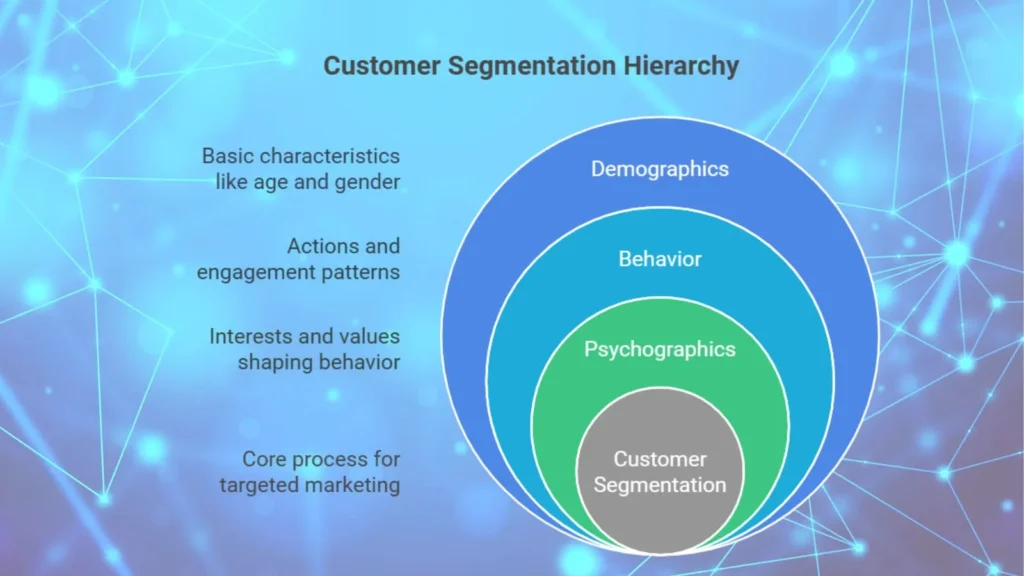
2. Recommendation Engines
Recommendation engines are perhaps the most recognizable application of machine learning in personalized marketing. By analyzing user behavior, preferences and historical data, these engines generate personalized product, content, or service recommendations. Techniques often used include collaborative filtering, content based filtering and hybrid models.
Case Study: Amazon’s Product Recommendations
Amazon’s recommendation engine is a classic example of personalized marketing at scale. It analyzes each user’s browsing and purchase history, and then suggests products that are highly relevant to them. This approach reportedly generates around 35% of Amazon’s total revenue by providing personalized shopping experiences that encourage repeat purchases.
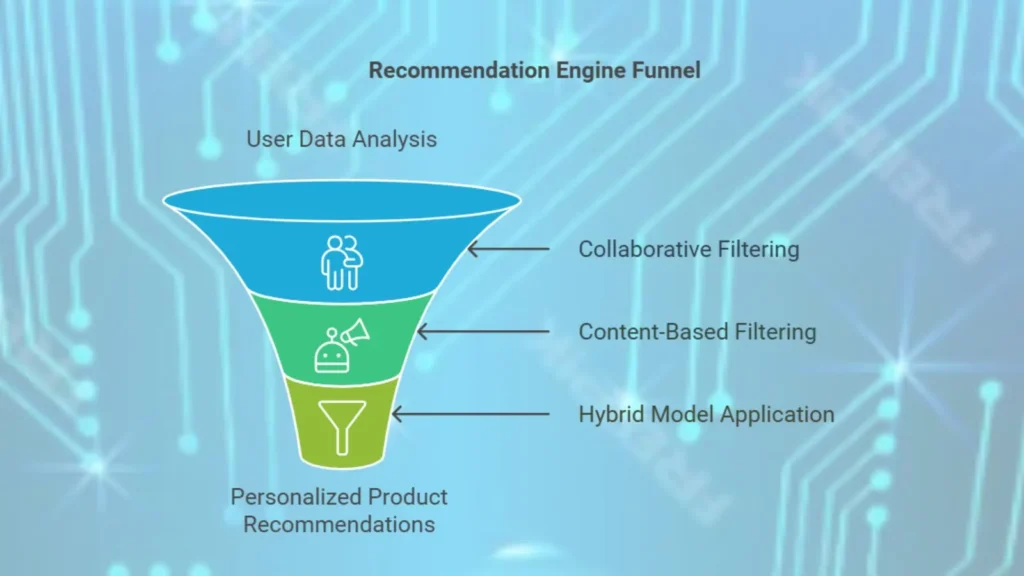
3. Predicting Customer Churn
Customer churn prediction involves identifying customers who are likely to leave, which enables businesses to take proactive steps to retain them. Machine learning algorithm analyzes historical data to detect signals of disengagement or dissatisfaction, such as a decline in purchasing frequency or low engagement levels. Businesses can then create personalized retention strategies, such as targeted offers or check-ins.
Example: Netflix’s Churn Prediction
Netflix uses machine learning to predict and prevent customer churn. It monitors factors like viewing habits, pauses and skips, and then identifies users who are at the risk of canceling their subscription. This information allows them to make outreach campaigns, by recommending relevant content or offering subscription adjustments to retain at risk customers.
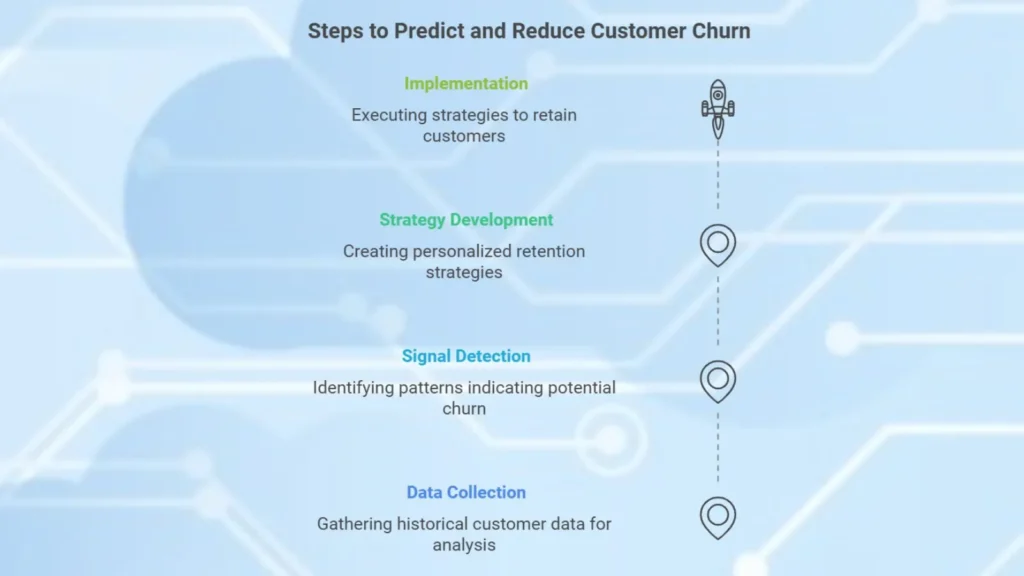
4. Dynamic Pricing
Dynamic pricing uses machine learning algorithms to adjust prices in real time based on demand, customer profile, competitor pricing and other variables. This approach enables businesses to offer personalized pricing that maximizes profit while staying competitive.
Case Study: Uber’s Surge Pricing
Uber’s surge pricing model is a well known example of dynamic pricing. Machine learning algorithms adjust prices based on demand in real time, which enables Uber to incentivize drivers to operate in high demand areas while maintaining customer satisfaction by balancing pricing with availability.
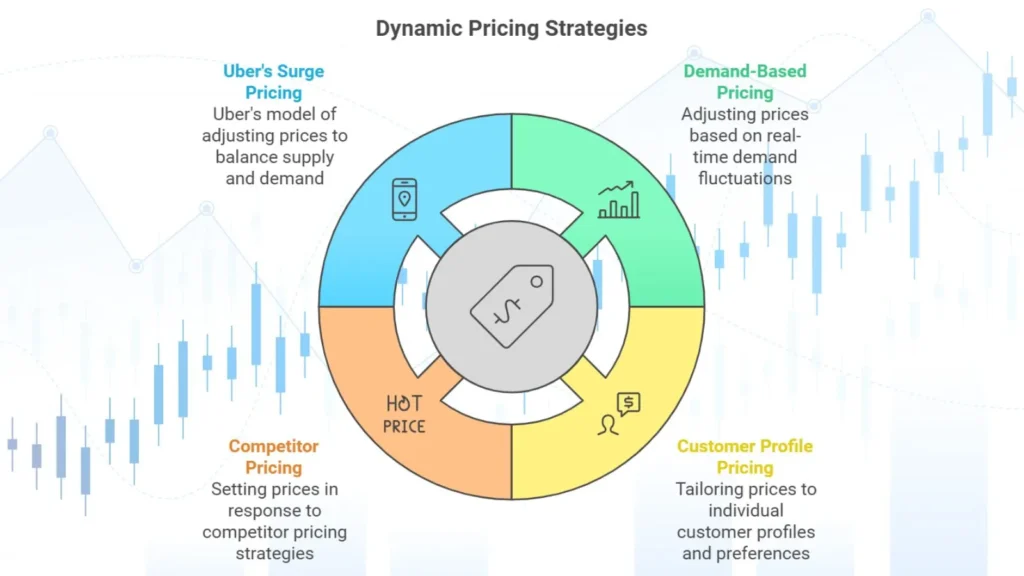
5. Sentiment Analysis for Social Listening
Sentiment analysis involves using natural language processing (NLP) to analyze customer feedback, social media posts and online reviews to understand customer sentiment. ML powered sentiment analysis helps businesses to check customer attitudes, monitor brand reputation and treat issues before they escalate.
Example: Coca-Cola’s Social Media Monitoring
Coca-Cola uses sentiment analysis to monitor brand perception across social media platforms. By identifying positive or negative trends, the company can adjust its marketing strategies accordingly, like respond to complaints quickly and maintain a positive brand image.
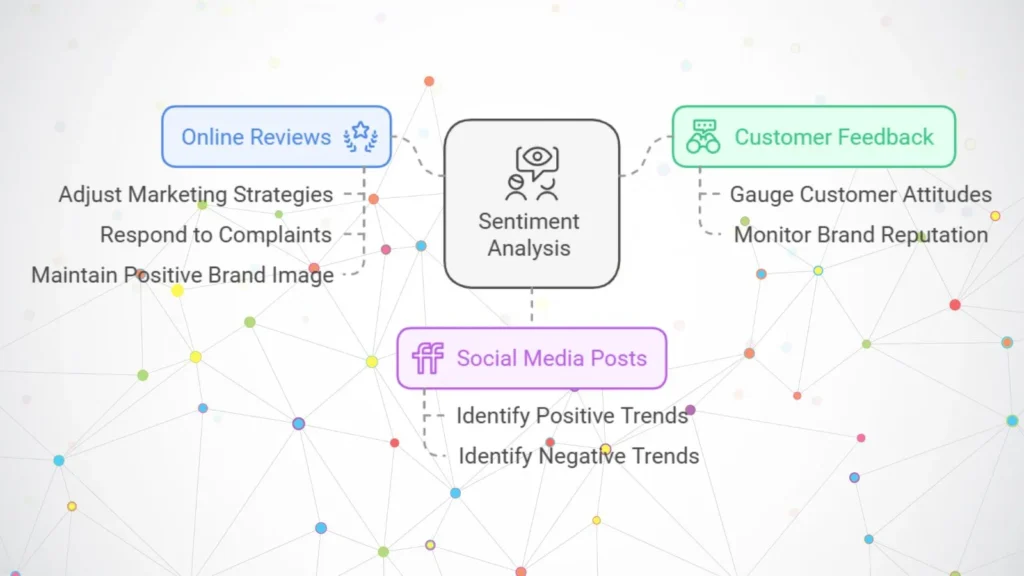
Steps to Implement Machine Learning for Personalized Marketing
Implementing machine learning for personalized marketing requires a strategic approach. Here are some key steps to help businesses get started:
1. Data Collection and Preparation:
Collect data from various sources such as customer transactions, social media and website interactions. Ensure data quality by cleaning, organizing and labeling the data accurately.
2. Define Objectives:
Clearly define your goals, such as increasing customer retention, boosting conversion rates, or enhancing user experience. This clarity will guide model selection and data processing steps.
3. Choose ML Algorithms:
Based on your objectives, select appropriate machine learning models (e.g., clustering for segmentation, collaborative filtering for recommendations).
4. Build and Train Models:
Use historical data to train your ML models, repeating and refining them to improve accuracy. Employ cross validation techniques to ensure model reliability.
5. Deploy and Monitor:
Once trained, deploy the model and continuously monitor its performance. Make adjustments based on feedback, new data, or changing customer behavior.
6. Evaluate Results and Optimize:
Assess the impact of machine learning on your marketing goals and optimize your models regularly to ensure sustained success.
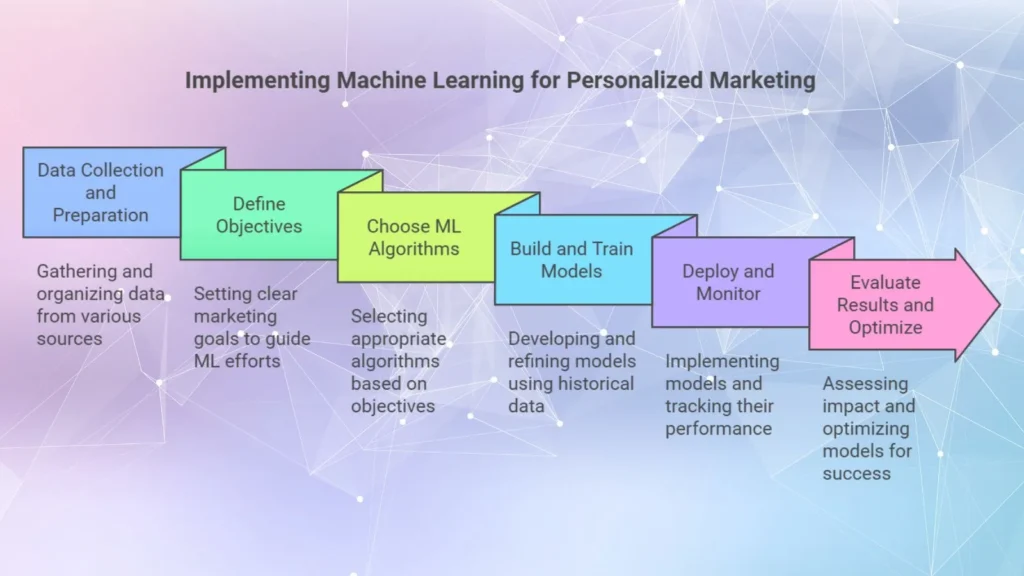
Real World Examples of ML Driven Personalized Marketing
1. Netflix: Content Recommendations
Netflix’s recommendation algorithm is powered by machine learning, analyzing users’ viewing patterns, ratings and preferences to suggest content they’re likely to enjoy. This approach has helped Netflix maintain high levels of viewer engagement, reduce churn and drive customer loyalty.
2. Starbucks: Personalized Offers Through Loyalty Program
Starbucks uses machine learning to personalize its loyalty program, which offers matched promotions to customers based on purchase history, preferences and timing. For instance, a customer who regularly buys coffee in the morning might receive an offer for a discount on their usual drink. This targeted approach has contributed to the success of the Starbucks Rewards program.
3. Sephora: Beauty Recommendations
Sephora uses machine learning in its app to provide personalized beauty recommendations. By analyzing customer data and preferences, Sephora’s app suggests products that align with each user’s beauty needs. This level of personalization enhances the shopping experience and encourages customer loyalty.
Benefits of Personalized Marketing with Machine Learning
– Improved Customer Satisfaction: By delivering relevant content and recommendations, ML driven marketing enhances the customer experience.
– Increased Conversion Rates: Targeted campaigns and personalized offers lead to higher conversion rates and reduced acquisition costs.
– Enhanced Customer Retention: Predictive analytics helps identify at risk customers, which enables businesses to take proactive measures.
– Efficient Resource Allocation: Machine learning enables marketers to focus resources on high impact campaigns and improve ROI.
– Scalability: Automated personalization allows businesses to scale their marketing efforts while maintaining relevance for a large customer base.
Challenges in Implementing Machine Learning for Marketing
While machine learning offers numerous benefits for personalized marketing, there are also some challenges:
1. Data Privacy and Security:
Handling large volumes of personal data requires strict privacy policies and strong security measures to protect customer information.
2. Data Quality:
Accurate predictions depend on clean, high quality data. Incomplete or inaccurate data can lead to misleading information.
3. Model Interpretability:
Complex algorithms, such as deep learning models, can be difficult to interpret, which makes it difficult to explain decisions to stakeholders.
4. Scalability and Infrastructure:
For larger businesses, to implement ML systems requires substantial investment in infrastructure and technical expertise.
The Future of Machine Learning in Personalized Marketing
The future of personalized marketing with machine learning is promising, with advancements in areas like:
– Real Time Personalization:
As ML algorithms become faster, real time personalization will become more accessible, which enables marketers to adjust campaigns dynamically based on live data.
– Augmented Reality (AR) and Virtual Reality (VR):
Combined with ML, AR and VR technologies could enable immersive, personalized experiences in fields like e-commerce and real estate.
– Voice Search and Conversational AI:
With the rise of voice search, marketers will use NLP based machine learning models to deliver personalized responses to voice queries.
– Increased Emphasis on Ethical AI:
As AI becomes more integrated into marketing, companies will need to focus on ethical considerations, including transparency, accountability and bias prevention.
Conclusion
Machine learning has revolutionized personalized marketing by enabling businesses to understand customer preferences, predict behaviors and deliver suitable experiences at scale. Through applications like recommendation engines, customer segmentation and churn prediction, ML is empowering businesses to develop stronger connections with their customers and improve marketing outcomes.
As technology continues to advance, companies that invest in machine learning for personalized marketing are likely to enjoy a competitive edge, driving customer satisfaction, loyalty and long term growth. By implementing machine learning thoughtfully and strategically, businesses can stand out and grow progressively in competitive global business.

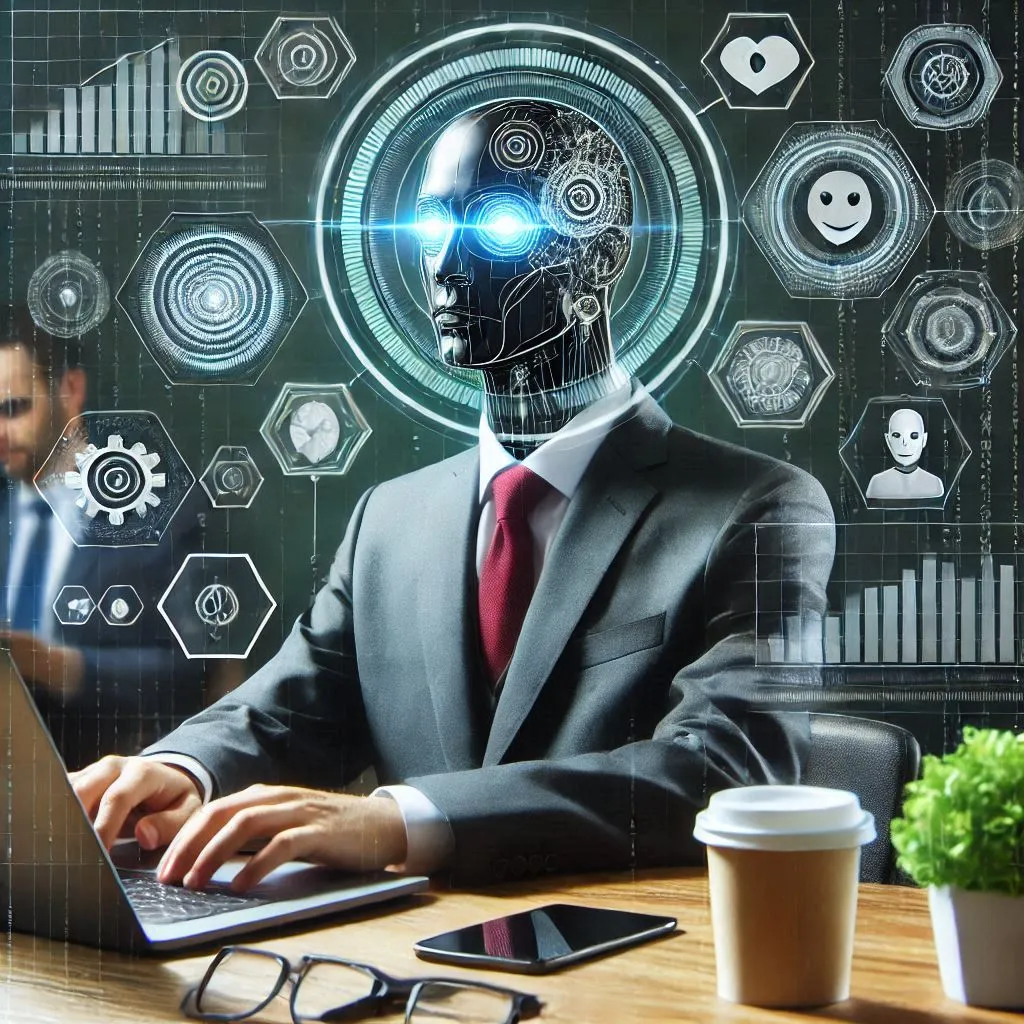
Feels like someone actually cares about UX.